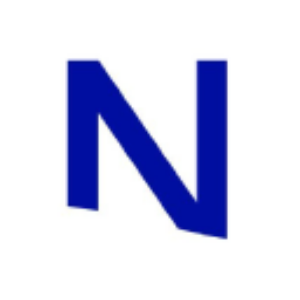Nephros Announces Release of DialyPath™, a qPCR-based, Real-time, On-site Endotoxin Assay for Dialysis Water
Nephros, Inc. (Nasdaq: NEPH) has announced the launch of DialyPath, an innovative assay that rapidly estimates endotoxin levels in dialysis water samples within two hours. This on-site testing solution is designed to enhance patient safety by identifying waterborne bacterial contamination, correlating highly with the industry-standard LAL assay. With a lower limit of quantification at 0.001 EU/ml, DialyPath significantly improves testing efficiency compared to traditional methods that take 2-3 days. The product does not rely on endangered horseshoe crab blood cells, making it a more sustainable choice.
- Launch of DialyPath allows for on-site testing of endotoxin levels in dialysis water, providing results in about two hours.
- DialyPath shows strong correlation (R² > 0.95) with the LAL assay, enhancing reliability.
- Lower limit of quantification (0.001 EU/ml) of DialyPath offers superior sensitivity compared to traditional assays.
- Product reduces reliance on endangered species by eliminating the need for horseshoe crab blood cells.
- None.
SOUTH ORANGE, NJ, Oct. 13, 2020 (GLOBE NEWSWIRE) -- via NewMediaWire -- Nephros, Inc. (Nasdaq: NEPH), a commercial-stage company that develops and sells high performance water purification products and pathogen detection systems to the medical and commercial markets, today announced availability of DialyPath™, an assay that estimates endotoxin levels in dialysis water samples.
Water sampling is generally required in dialysis clinics to ensure that no waterborne contamination is present. Of particular interest are endotoxins, which are gram-negative bacterial fragments that can cause inflammation and other complications in dialysis patients. DialyPath is an on-site test that measures endotoxin levels in about two hours.
DialyPath results correlate highly (R2>0.95) with data from the limulus amebocyte lysate (LAL) assay, currently the industry standard for endotoxin measurement (EU/ml). DialyPath uses qPCR technology to quantify DNA target segments in a water sample, which are matched to a DNA segment that is found in all gram-negative bacteria. From these results, DialyPath uses proprietary algorithms to estimate the number of endotoxin units in a dialysis water sample.
“We are very excited to launch DialyPath,” said Kimothy Smith, DVM, PhD, Vice President of Pathogen Detection Systems at Nephros. “It is an extremely sensitive assay, with a 0.001 EU/ml lower limit of quantification (LLOQ), compared to an LLOQ of 0.1 EU/ml for most LAL assays.”
Dr. Smith continued, “Water sampling today is largely performed at off-site laboratories, typically requiring 2-3 days to produce actionable results. By comparison, DialyPath is an on-site test, providing results within 2 hours. This will allow biomedical engineers to more quickly diagnose, correct and recommission dialysis water treatment systems. ”
DialyPath was designed to deliver real-time endotoxin data to biomedical engineers in dialysis clinics and hospitals, who need to make decisions on dialysis water systems for patient well-being. With broader market experience and validation, Nephros believes that DialyPath could replace the LAL assay for the routine testing of dialysis water and dialysate. Nephros is currently generating a large data set to validate DialyPath for a wide range of on-site conditions and water samples and plans to publish this data in a peer-reviewed journal in the future.
It is also worth noting that the LAL assay requires the use of blood cells from the Atlantic horseshoe crab, which is an endangered species. DialyPath does not require the use of horseshoe crabs. It utilizes only materials from synthetic chemistry and bacterial cell culture extractions.
About Nephros
Nephros is a commercial-stage company that develops and markets high performance water purification products and pathogen detection systems for medical and commercial markets.
Nephros ultrafilters are used in hospitals, medical clinics, and commercial facilities to retain bacteria – including Legionella and other pathogens – and viruses from water, providing an important aid in infection control for showers, sinks, and ice machines. Nephros ultrafilters are also used in dialysis centers to aid in the removal of endotoxins and other biological contaminants from water and bicarbonate concentrate in hemodialysis machines.
Nephros pathogen detection systems, including the PluraPath™, SequaPath™, and DialyPath™ systems, provide data on waterborne biological content to medical and water quality professionals. Our products integrate Nephros ultrafilters with quantitative polymerase chain reaction (qPCR) technology to deliver actionable water pathogen information in real time.
Nephros commercial filters, including AETHER™ brand filters, improve the taste and odor of water, and reduce scale build-up in downstream equipment. Nephros and AETHER™ products are used in the health care, food service, hospitality, and convenience store markets.
For more information about Nephros, please visit its website at www.nephros.com.
Forward-Looking Statements
This release contains forward-looking statements that are subject to various risks and uncertainties. Such statements include statements regarding Nephros’s expectations that its DialyPath product could replace the LAL assay for routine testing of dialysis water, its plans to publish data from testing of its DialyPath product, expected demand for the DialyPath product, and other statements that are not historical facts, including statements that may be accompanied by the words “intends,” “may,” “will,” “plans,” “expects,” “anticipates,” “projects,” “predicts,” “estimates,” “aims,” “believes,” “hopes,” “potential” or similar words. Actual results could differ materially from those described in these forward-looking statements due to certain factors, including changes in business, competitive and economic conditions, particularly the continued impact of the COVID-19 pandemic on the U.S. economy, and the availability of financing or other capital when needed. These and other risks and uncertainties are detailed in Nephros’s reports filed with the U.S. Securities and Exchange Commission, including its Annual Report on Form 10-K for the year ended December 31, 2019. Nephros does not undertake any responsibility to update the forward-looking statements in this release.
Investor Relations Contact:
Kirin Smith, President
PCG Advisory, Inc.
(646) 863-6519
ksmith@pcgadvisory.com
Media Contact:
Bill Douglass
Gotham Communications, LLC
(646) 504-0890
bill@gothamcomm.com
Company Contact:
Andy Astor, COO & CFO
Nephros, Inc.
(201) 345-0824
andy@nephros.com
FAQ
What is DialyPath and what does it do?
How does DialyPath compare to the LAL assay?
What are the benefits of using DialyPath?
Who is the target market for DialyPath?







